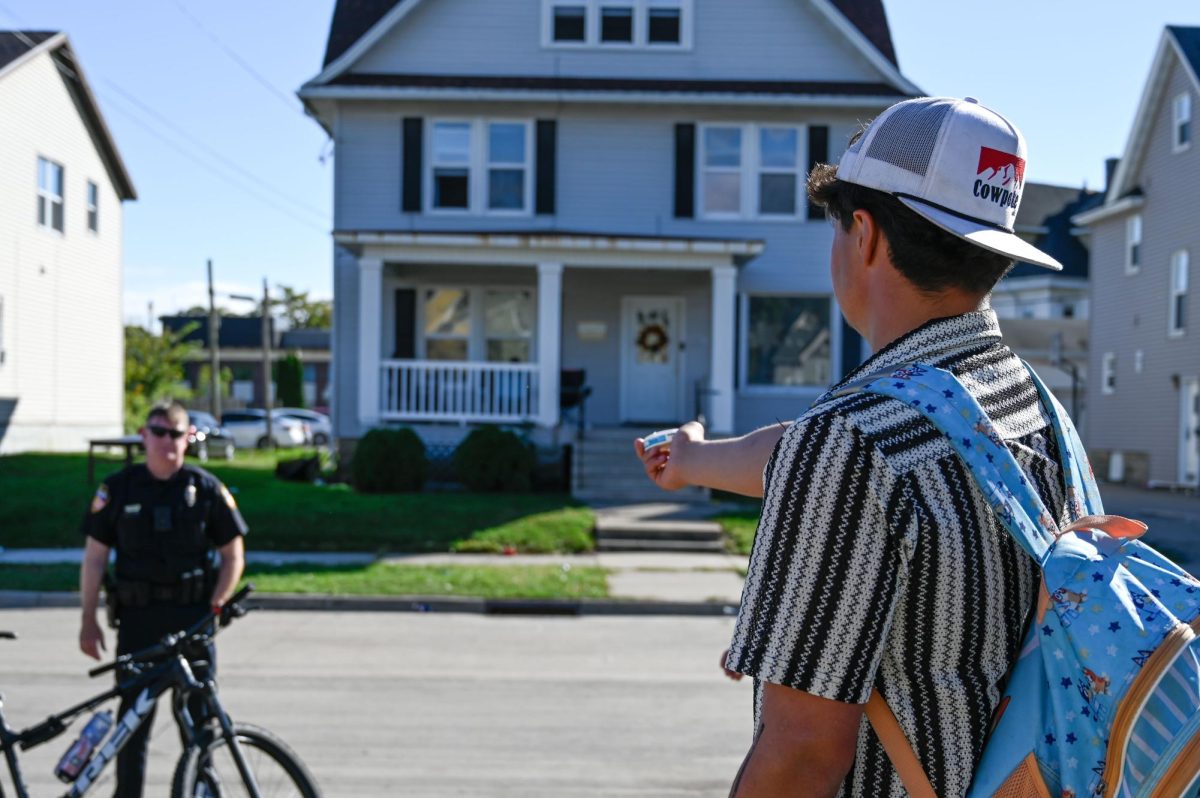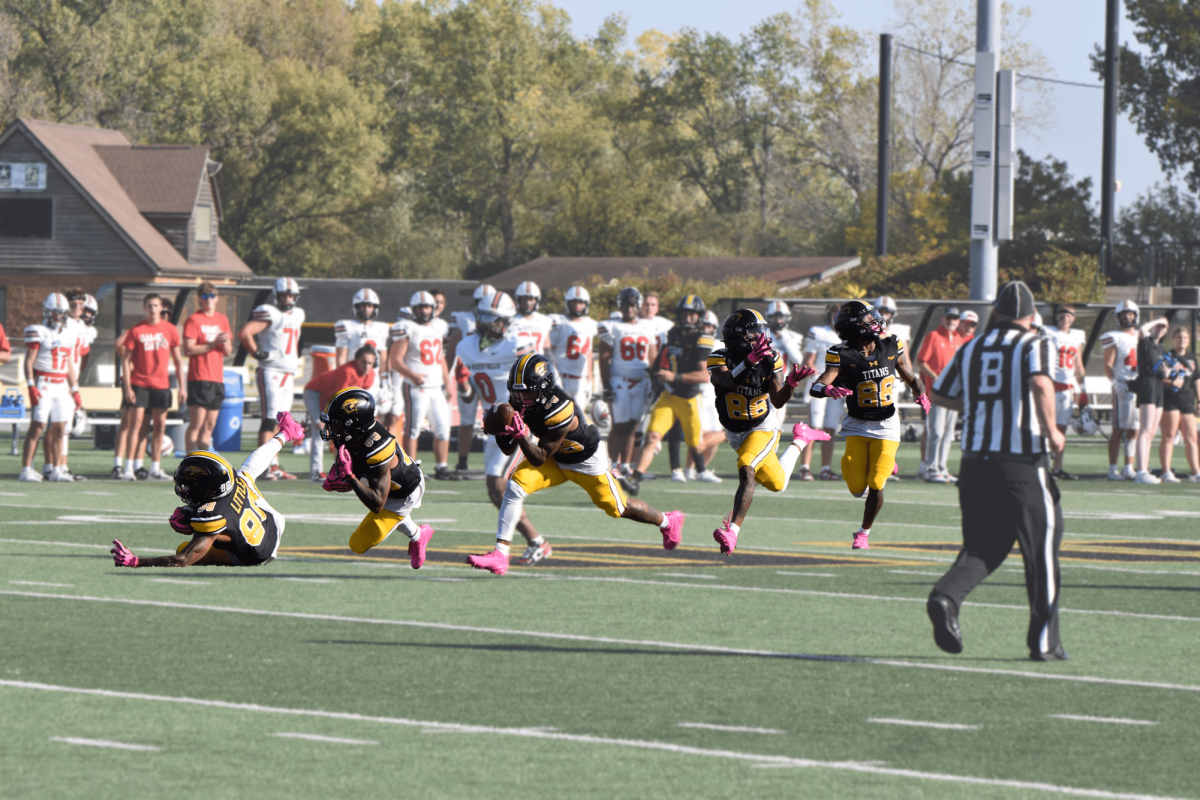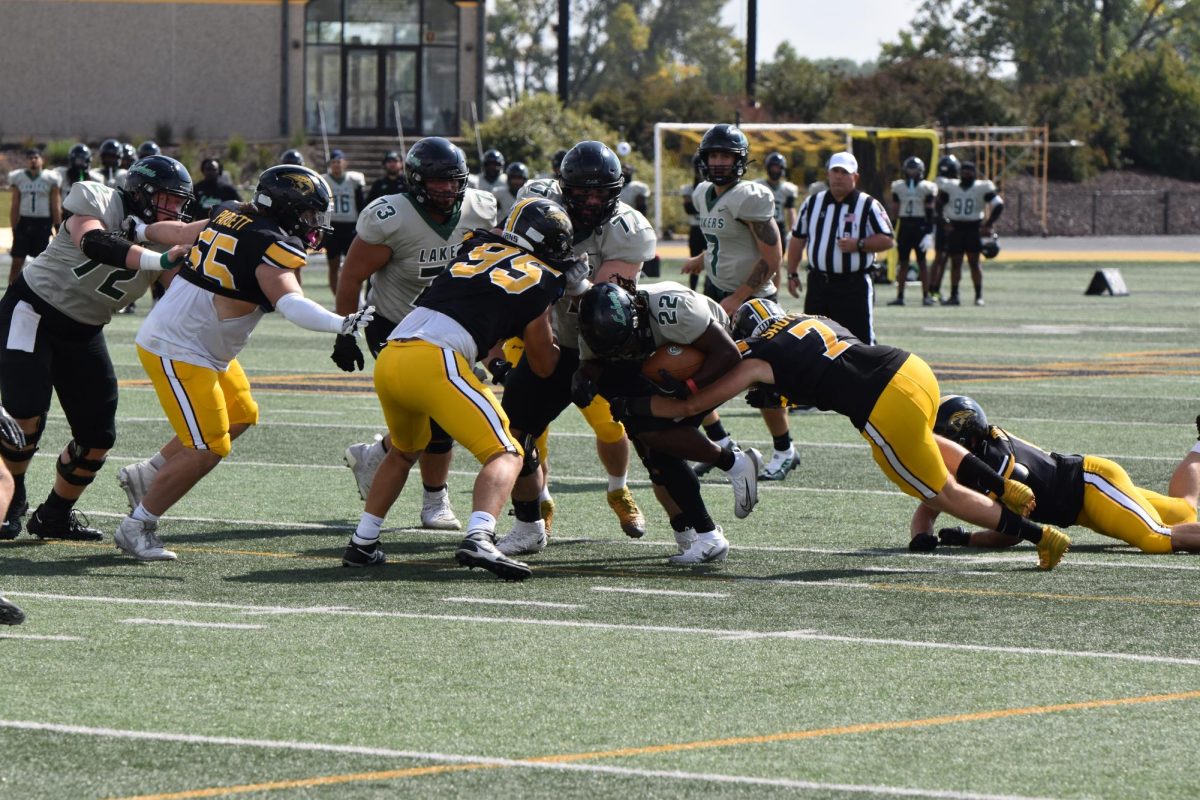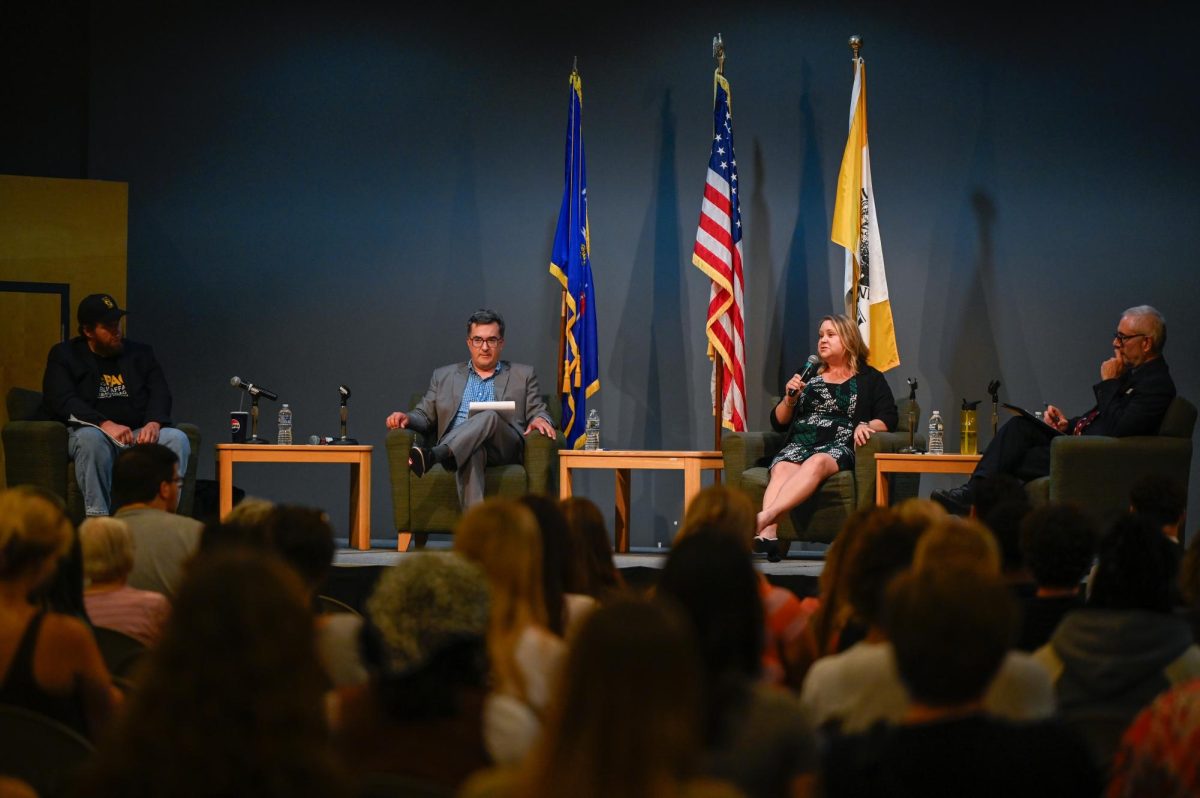“We’re trying to put together this big puzzle on what our reality is going to be come spring semester, but we don’t have any idea where all the pieces are because they’re scattered everywhere,” Cindy Schultz, academic department associate in the department of advertising, multimedia journalism and public relations (AMP) at UW Oshkosh, told WORT 89.9FM in an interview on Monday.
It has been only a week of processing the heartbreaking staff layoff announcements and it seems this grief isn’t going away anytime soon. The recent news in regards to the $18 million budget deficit has been anything but expected and – in many ways – worse than members of the university were led to believe, according to many faculty members.
Pascale Manning, associate professor of English and president of the Faculty Senate, acknowledges the impact the budget deficit has had on the university and student body and hopes to make people aware that the budgetary issues stem from roots that run deeper than what the university has control over.
“The students have already felt some of the impact of the layoffs, both because we have many students working as university employees and because our students have meaningful relationships with university employees who are either being laid off or are, as in the case of our valued instructional academic staff, facing nonrenewal,” Manning said. “My hope is that our students realize, first, that their professors are doing and will continue to do all they can to protect the world-class education they receive at UWO.
“Additionally, it is my hope that our students will come to understand the forces that have conspired to bring this budgetary crisis about,” Manning said. “While there are financial choices we can and should point to as causal factors at this university, the fact that Wisconsin ranks 43rd nationally in per-student funding for its public universities should be recognized as a decisive cause of this crisis.”
New information is unraveling day-by-day in light of the budget deficit and campuswide trust in upper administration seems to be wavering; however, David Siemers, president of the United Faculty and Staff of Oshkosh (UFSO) and a UWO political science professor for 23 years, said administrative authorities at the university tarnished their reputation long before news about the budget deficit and subsequent layoffs broke.
“Trust in the Administration was low before the layoffs,” Siemers said. “Last year alone, they threatened 100+ jobs by proposing the outsourcing of our custodial and grounds crews. They abandoned our longstanding commitment to running our day care center and increased the teaching load for instructional staff. So relations were strained long before this.”
Siemers said administration failed to share the degree in which these layoffs would affect programs at the university, and in doing so, they’ve left behind a mess for the remaining faculty and staff to clean up, long after these administrators have moved on.
“They didn’t tell us that the Office of International Education would be closing its doors,” Siemers said. “They didn’t tell us that they would fire everyone who runs our general education programs. There are really good people going away who did their jobs so well and (who) helped a lot of students,” Siemers said. “(UFSO members) are just gobsmacked about how many of the people were laid off. We don’t know why an outside consulting firm has a better sense of who does what job here and how well than people at UW Oshkosh. It is frustrating because many of us will be here long after these administrators leave, and we will have to deal with what they leave behind.”
Moving forward, Siemers said the union is more than willing to improve the alliance with administration, but it requires a valiant effort from both parties.
“The chancellor insists that we don’t exist, but we do,” Siemers said. “Collectively, we have many centuries worth of experience here at UWO. We are ready to have a more productive and collaborative relationship with the administration, but that requires them being open to collaboration.”
Oshkosh Student Government (OSG) President Ben Blaser, Vice President Jakob Rucinski and Director of Staff Frances Kerkhof collaborated on the following responses and said they have been working relentlessly to share UWO student perspectives and concerns within shared governance meetings. They said they recognize that communication between other shared governance groups can always be improved.
“In those meetings, we have voiced our concerns and brought forward the concerns presented to us by students; the current events are a prime example of why students need to be at the table,” Blaser, Rucinski and Kerkhof said. “Nonetheless, we recognize that there is room for improvement within the shared governance dialogue. We will continue to push for student representation and voices in those discussions.”
Blaser, Rucinski and Kerkhof added that rather than focusing on how things could’ve been handled differently, OSG is focused on how things should be handled moving forward. This begins with transparency from the university.
“While it is easier to look back and critique how something should have been done or handled differently, OSG believes that our energy and attention are better spent focusing on what will happen next,” Blaser, Rucinski and Kerkhof said. “We feel that more work needs to be done for the sake of transparency with students. From the concerns and questions we have collected from the student body, we have gathered that many students don’t fully understand all the changes.”
For this reason, OSG will hold a town hall on Nov. 1 at 5:30 p.m. in Reeve 307; a live stream should also be available if students cannot attend in person.”
OSG has been fortunate to avoid cuts to staff members of their organization, but recognizes that various student services, administrators and staff across campus they work alongside will be significantly impacted and voiced their concern over student experience going forward.
“We are certain that the student experience will be affected in more ways than one,” Blaser, Rucinski and Kerkhof said. “OSG is deeply concerned with how the budget cuts and notices will affect academic programs, vital resource centers on campus that help support underrepresented and minority students, as well as the overall student experience on campus, student retention and enrollment. We pledge to have student voices be present at those meetings and, in turn, will be transparent about the changes — especially in those that affect the student body directly.”




















